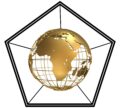JOAPS VOL. 22, No.1, 2016
Abstracts
Diamond in the Rough: Unearthing Botswana’s Sources of Political Legitimacy
Angela Gapa, Ph.D.∗
Abstract Botswana has garnered analytic attention in the past few decades as Africa’s developmental miracle. Being among the poorest countries in the world upon its independence in 1966, it catapulted itself to one of the fastest growing economies in the world for a period of four decades. What made the Botswana experience all the more outstanding, was that within the context of its company among other non-renewable natural resource dependent countries, it stood as an anomaly. This is because these resource endowed countries generally suffered or were susceptible to the “resource curse”. This paper identifies legitimacy as having important value in explaining both Botswana’s political and economic development as well as its escape of the resource curse. It argues that Botswana’s experience can best be illuminated and understood through exploring its sources of political and state legitimacy which were carried from pre-colonial, through colonial into the post-colonial era, and not disrupted to the same extent as elsewhere on the continent and in other natural resource exporting countries. Adopting a Weberian understanding of legitimacy, it argues that legitimacy in Botswana stemmed from the low levels of arbitrariness in its colonialism that facilitated the continuation of legitimate norms and justifications of authority; from the traditional, charismatic and rational-legal authority of its elites; from the horizontal legitimacy of its society fostered by largely voluntary pre-colonial and post-colonial mechanisms of assimilation ; as well as legitimacy from its autonomy against external disruptive forces. The paper concludes by stating that research on regional variation on developmental outcomes particularly in Africa as well as research on the “resource curse” should pay closer attention to political legitimacy as an explanatory value beyond the traditional structural and institutional explanations.
China in Africa: A Critical Examination of Its Peacekeeping and Peacebuilding Activities.
Earl Conteh-Morgan∗ and Patti Weeks∗
Abstract The objective of this analysis is to examine and critically assess the peacekeeping and peacebuilding efforts of China in Africa generally. In other words, what level of support does China provide to African peacekeeping efforts? What is China’s rationale for engaging in peacekeeping and peacebuilding in SSA? What is the nature of its activities in those areas? What does it emphasize in its peacebuilding and peacekeeping activities?
Islamic Political System in Sudan and its National, Regional, and International Impact.
Solomon Hailu, Ph.D∗
Abstract The influence of radical Islamic ideology has been important in international relations at least since the revolution that toppled the Shah of Iran in1979. However, the influence of political Islam in Sudan’s internal politics goes back even longer. This paper provides an overview of the historical background to the origin and development of political Islam in Sudan. It argues that the North Sudan’s successive post-independent government’s forced Islamization of the South Sudan was the main contributing factor in what became the longest ethnoreligious civil war in Africa and ended in the birth of the state of South Sudan. It also demonstrates how Sudan’s foreign policy of propagating radical Islamic views beyond its own borders as a social and political system added an important dynamic to the already-complex conflicts of the Horn of Africa.
